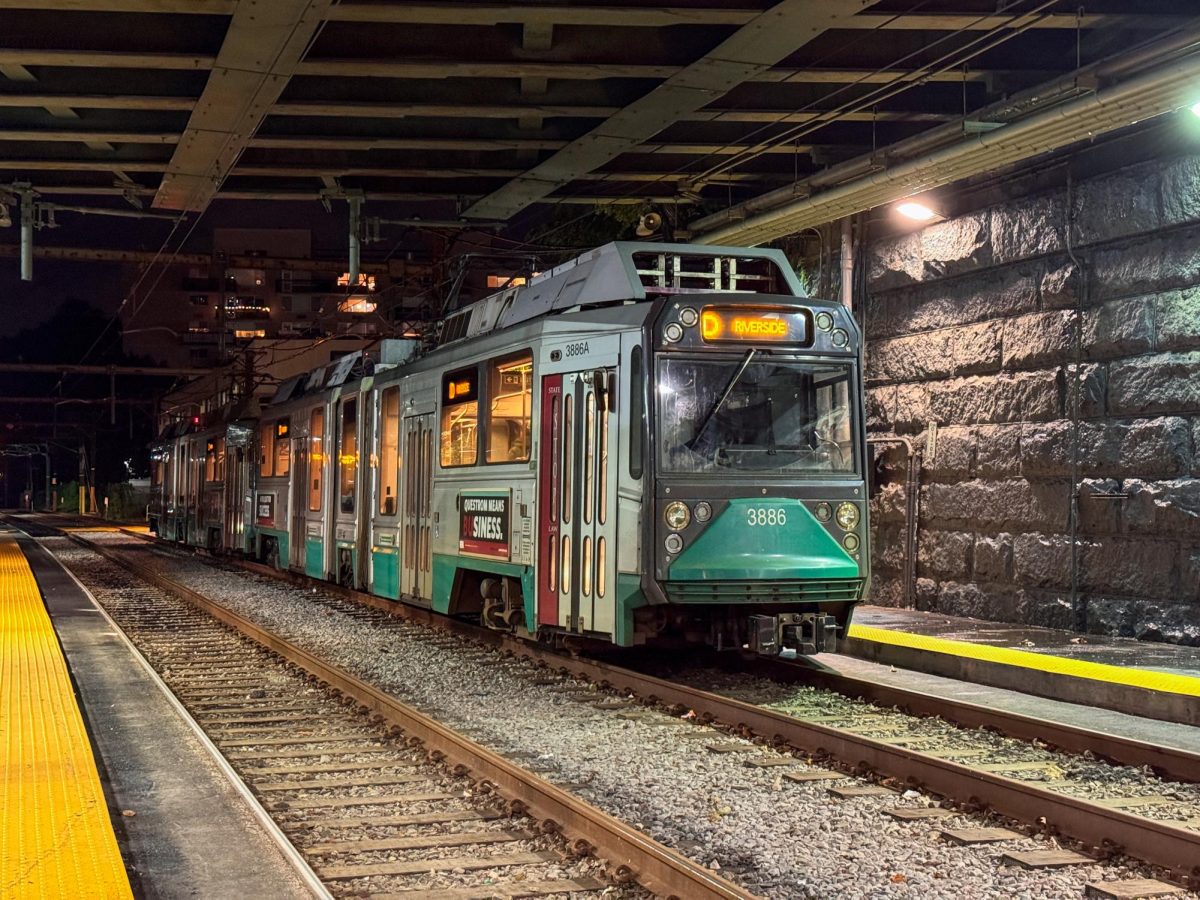For Suffolk University senior Julia Coolidge, her daily commute on the Green line is anything but predictable.
From long wait times to traffic accidents, she said the consistency of the MBTA leaves much to be desired.
“I think it mostly depends on the weather, the day and the time,” said Coolidge, who takes the Boston College branch to Suffolk.
Coolidge’s struggles are just one of many among frequent T riders. The MBTA has seen reduced service since the beginning of the COVID-19 pandemic with current weekday service sitting at roughly 84% of what it was pre-pandemic and ridership 61% of its pre-pandemic level, according to Transit Matters, a non-profit focused on public transit in Massachusetts.
The T is currently facing multiple shutdowns on the Green line along with weekend shutdowns of the Braintree Branch of the Red line, stemming from deteriorating infrastructure that affects multiple lines.
Julia McLellan, a Suffolk alum who regularly takes the Blue line, said using the T as their primary mode of transportation can be frustrating, especially now that the MBTA has reinstated fares for the line.
“I don’t like that the T isn’t free when it doesn’t work half the time,” said McLellan.
The MBTA’s 2024 budget was $2.7 billion and, according to MBTA Director of Communications Joe Pesaturo, it includes $181 million in capital investments for work on bridges, station improvements and design work on the proposed future Red-Blue Connector between Bowdoin and Charles/MGH.
“Nevertheless, even though it is only 2% of operating revenues, the MBTA is doing all it can, and is legally allowed to, to boost its own-source revenues … That said, the MBTA continues to recover from the pandemic,” Pesaturo said.
This was following the Federal Transit Administration’s new order for the MBTA, forcing it to pause most work last week during revenue service after a slew of near-miss accidents with workers across the system, reported by the Boston Globe.
The MBTA has been working on multiple transformation projects on every part of its system. These projects include Automated Fare Collection 2.0, which will see the current fare collection system replaced across the entire MBTA. AFC 2.0, announced back in 2017, has a price tag of $723 million. According to the MBTA’s website, AFC 2.0 is meant to be completed by 2025 by Cubic Transportation Systems.
Another current project is the replacement of all Red and Orange line trains. Due to issues with quality control and other issues at CRRC’s factory in Springfield, Massachusetts, the MBTA has pushed back final delivery and is “working to define [a] final realistic and achievable vehicle delivery schedule,” said Phillip Eng, MBTA general manager.
The MBTA is still waiting on 62 new cars for the Orange line and 240 for the Red line from CRRC.
The MBTA is about to embark on a multi-week shutdown of the Ashmont branch of the Red line in late October, along with the Mattapan Trolley that runs from Ashmont station to Mattapan station.
This shutdown is occurring in order to complete track work and station improvements. In a statement the MBTA said, “The track between JFK/UMass and Ashmont stations and on the Mattapan line is some of the oldest in the system and is in need of replacement.”
The MBTA hopes that this line shutdown and replacement work will allow them to remove the 28 speed restrictions on the branch.



















